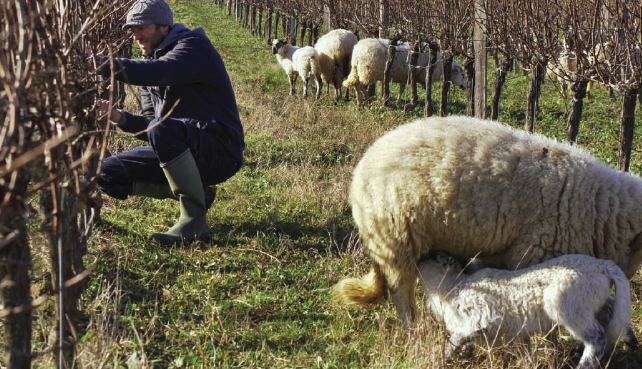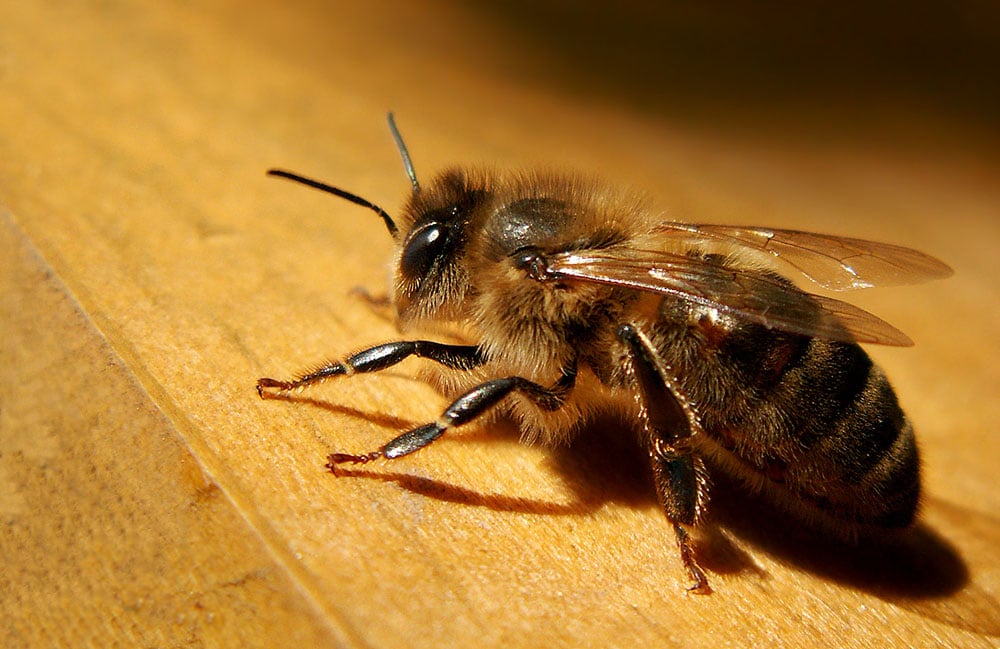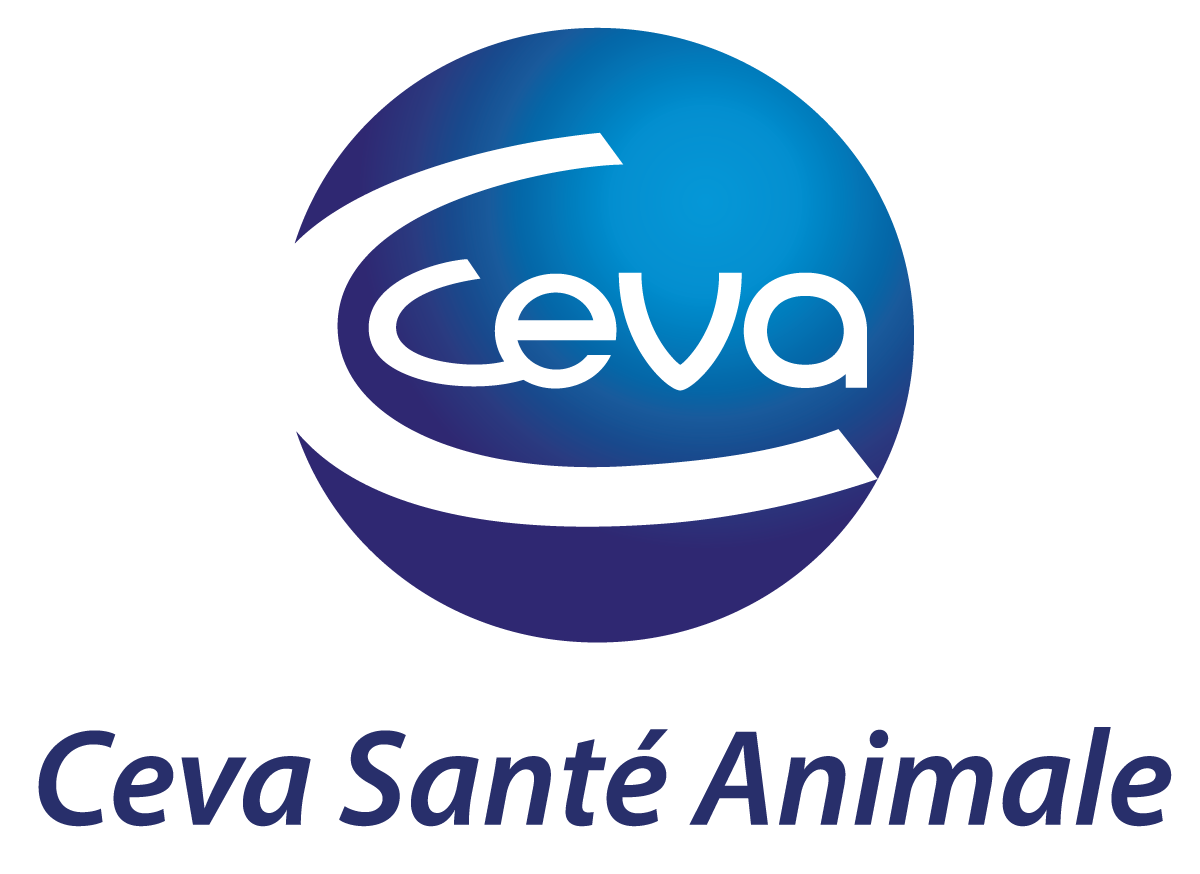
Ceva’s ongoing support to Conservatoire des Races d’Aquitaine – a not-for-profit organisation created in 1991 to deal with the disappearance of the biological and cultural diversity associated with the Nouvelle-Aquitaine region’s unique livestock and other domestic animals – is helping the organisation to achieve important biodiversity wins.
In 2018, Conservatoire des Races d’Aquitaine launched an initiative to reintroduce sheep to vineyards to practice ‘eco-pastoralism’ – a new name for a lost, traditional management system in Bordeaux. Initially just three chateaus accepted the organisation’s offer to use a small flock of Landaise sheep to graze their vineyards during the winter and early spring. By 2021, 14 chateaus had signed up and eleven of them agreed to take over year-round management of their flocks.
Returning sheep to the vineyards brings a number of environmental benefits: the sheep enrich the soil through their manure and undertake natural weeding as they graze; the soil is much less compacted compared to when heavy machines are used, thereby enhancing soil structure and health, and reliance on fossil fuels is reduced; and there is a noticeable increase in abundance and diversity of native flora, insects and other wildlife. Previously, the Conservatoire des Races d’Aquitaine, working in partnership with Parc Naturel Régional des Landes de Gascogne, has worked to reverse the severe decline in the population of Landaise sheep.
At the end of the 19th century there were more than a million of this hardy breed, which was valued locally for its manure, used to fertilize crops, as well as its meat and wool. However, over time the breed was replaced locally by more productive improved breeds and by 1965 just a few hundred survived. In 1975, alarmed at the risk of losing the breed for ever, the partners secured the last three surviving bloodlines of the breed and began to promote the advantages of using Landaise sheep, especially in relationship to eco-pastoralism. Their initiative succeeded and today there are more than 3,000 of these hardy sheep in the region.
Commenting on the benefits of bringing Landaise sheep back to his vineyard since 2019, Alain Ferran, owner of the Château Ferran, a biodynamic estate, explained: “From the start, the presence of the ewes changed the atmosphere in the vineyards. The vines came to life, the grazing by the sheep allowed a change in the flora, the earthworms have multiplied, soil life is activated all the time…It is very relaxing to be among the herds of sheep. Even if we did not quantify the advantages, morally it is super beneficial as a winegrower to be in contact with animals. I am proud to participate in the development of this breed that I love so much”.
Conserving France’s native black bee
Both wild and domestic bees are essential components of healthy and balanced ecosystems as these species help to pollinate more than 80% of flowering plant species. The black bee (Apis mellifera mellifera) is the honeybee sub-species that was originally found in Western and Northern Europe, including the Nouvelle-Aquitaine region.

During the past 50 years, however, beekeepers have often imported different honeybee subspecies from throughout Europe and other types of wild honeybee, including subspecies from Africa, have expanded their ranges to Europe. Alarmed at the implications of these developments for the indigenous black bee of Nouvelle-Aquitaine, in 2019 a survey was undertaken, led by the Conservatoire des Races d’Aquitaine, to establish the genetic composition of honeybees in the region.
The results confirmed the widespread presence of populations whose genetic make-up included components from honeybee subspecies from other parts of Europe and Africa. Most colonies showed high levels of hybridization with these exotic lineages but 33 of the 120 colonies sampled showed only weak levels of hybridization – that is, these colonies were closer to being pure native black bees.
Bees collected from these relatively pure colonies were taken to a specially created conservation apiary located in a natural forest within a military zone in Biscarrosse in Nouvelle-Aquitaine. Being a military zone, it was much easier to avoid possible introduction of non-native bee populations. Another survey was conducted in 2020 to improve understanding of the genetics of honeybee populations in the region and to enable different stains of black bee to be identified.
This will enable the genetic diversity of the black bee population at the conservation apiary to be increased. Eventually, it is hope that swarms and queens of the native black bee can be made available to the region’s beekeepers. Meanwhile, in 2021, the first educational apiaries containing black bees were established with municipal partners in the region.
Discover our Economic and Social Report 2022 here.
